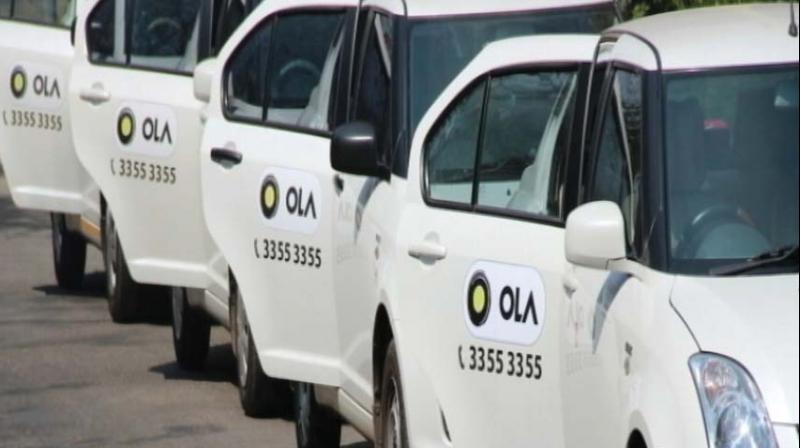Jams: Cops ask RTO to stop registering cabs

Bengaluru: Cab aggregators, like Ola and Uber, have been touted as the solution to traffic congestion in Bengaluru, with experts suggesting that ride-sharing services address the demand for transport with a relatively small number of vehicles.
But the reality is, traffic police officials say, cab services are contributing majorly to jams across the city.
The traffic police department has now asked the Regional Transport Office to stop issuing new registrations to cabs for a few months to reduce traffic congestion in the choked city.
"The number of cars has grown by 31%, while in comparison, the bus numbers, both private and public, have gone up by only 24%. It's better for the RTO to stop issuing new permits for a few months. That will definitely bring down the traffic problem in the city," said a senior traffic police officer.
Latest data shows that Bengaluru has 78.84 lakh vehicles, of which 85 per cent are in regular use. "Every day, 3.5 lakh cabs are on the road. Cabs may provide an efficient alternative to cars, but the increasing number of cabs too is contributing to traffic jams. Our cities now have tens of thousands of taxis, which move from drop-off points to pick-up points looking for customers and this phenomenon is called deadheading. The government should make arrangements for parking at all Metro stations and stop new permits to cabs," the official said.
The number of cabs is timed to cater to maximum demand during peak hours. During off-peak hours, cabs are parked on roads, often in front of malls and offices, congesting roads and obstructing traffic flows. During peak demand, all taxis move towards the same spots, offices, malls, restaurants and Metro stations, which is also contributing to jams, he said.
Cabs may get 6 months to fit GPS, panic button
The transport department has written to the ministry of road transport and highways seeking time till July 31 to install e-tracking devices and panic buttons on public and commercial transport vehicles.
The department has explained that unless a command and control centre is established by the state to capture, store and analyse the data received, it will not be able to insist on the vehicles being fitted with these devices.
Under the rules, all commercial vehicles registered on and after January 1 are required to have e-tracking devices (GPS) and panic buttons. Although they now have more time to fall in line, operators of commercial vehicles, including taxi drivers in Bengaluru, complain the rules are being enforced without the creation of the necessary infrastructure.
Cab drivers, in particular, feel the move to install these devices makes little sense in the absence of a tracking or call centre to receive the messages sent by passengers.
They claim the department is only out to make money as they will have to shell out Rs 12,000 for the devices and pay monthly charges to the GPS service provider.
“They are asking all public and commercial vehicles to install a vehicle tracking system and panic buttons . Although the devices are easily available in the market for Rs 5,000, we have been told to buy them from a particular company for Rs 12,000. We will also be required to pay internet charges every month to the service provider, which has been given a tender by the BSNL, " complained Mr Tanveer Pasha, president of the Ola and Uber Union.
"They have given us more time, but when drivers are not able to pay their EMIs, how can they afford the additional cost of panic buttons and monthly service charges? The government should look into this," he added.

